PMI UPDATES
Discover our groundbreaking advances in wound care technology and industry-leading solutions for burn treatment and complex wounds.
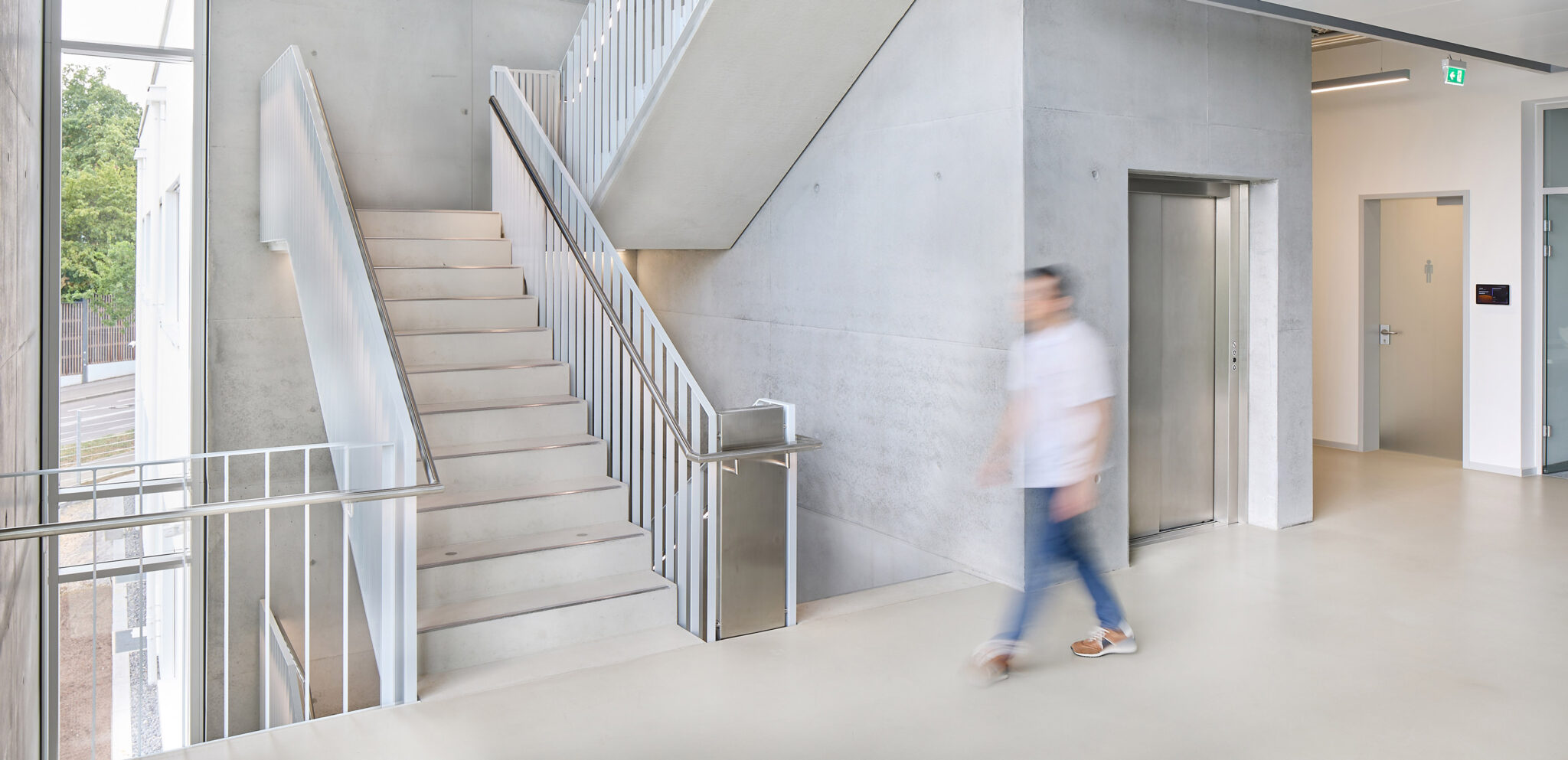
Discover our groundbreaking advances in wound care technology and industry-leading solutions for burn treatment and complex wounds.
In 2025, a total of 12 scientific publications reported on the clinical use of our products, highlighting the continued generation of new, independent clinical evidence. These peer-reviewed studies cover systematic reviews, comparative clinical studies, health-economic analyses, and case reports across burn care and complex wound indications.
To illustrate this approach, we are highlighting three publications in more detail below:
van de Warenburg et al., 2025 – Does the dressing matter in pediatric partial-thickness burns: a systematic review and meta-analysis (Burns)
This PRISMA-compliant systematic review and meta-analysis (68 studies, >8,000 pediatric patients) found that skin analogues were associated with shorter healing time & favorable outcomes regarding pain, scarring, and length of hospital stay compared with topical therapies. The study provides a high-level evidence-based overview of current treatment approaches in pediatric partial-thickness burns.
DOI: 10.1016/j.burns.2025.107428
Raine et al., 2025 – Polylactic Acid Membrane for the Treatment of Pediatric Burn Injuries: An Adoptable Practice to Improve Burn Management (Annals of Plastic Surgery)
In this single-center retrospective era comparison (n = 331), outcomes following implementation of a polylactic acid membrane were compared with a preceding standard-of-care era using conventional topical dressings and operative management as clinically indicated, showing fewer sedated dressing-change days, shorter operative procedure times, and reduced hospital length of stay, with comparable wound healing outcomes. These findings describe associations related to a practice change and suggest potential effects on clinical workflow and resource utilization in pediatric burn care.
DOI: 10.1097/SAP.0000000000004261
Based on data derived from a randomized clinical trial, a PLA dermal matrix was associated with faster wound closure, higher closure rates at 12 weeks, and lower overall treatment costs compared with collagen dressings in patients with diabetic foot ulcers. The analysis indicates a favorable cost-utility profile, including higher quality-adjusted life years (QALYs) within the evaluated indication.
DOI: 10.3389/fpubh.2025.1625252
The remaining publications published in 2025 include:
– Awolola et al., 2025 – Suprathel Burn Dressing Versus Standard Care: Impact on Hospitalization Duration and Post-Discharge Outpatient Visits
– Galati et al., 2025 – Correlation of O2C-Device with Cutometer and Scar Scales in the Evaluation of Burn Scars
– Heitzmann et al., 2025 – Long-term Skin Quality and Scar Formation after Enzymatic Debridement of Deep-Dermal Burn Wounds: A Comparative Study of Suprathel® and Jelonet®
– Koll et al., 2025 – Analysis of the (Lymph-)Angiogenic Potential of Regenerative Scaffolds and the Impact of Adipose-Derived Mesenchymal Stem Cells
– Lipkin et al., 2025 – Utilization of Suprathel® in Delayed Surgical Management of Toxic Epidermal Necrolysis (TEN): A Case Report
– Martínez-Jiménez et al., 2025 – Facial Burn Healing with a Polylactic Acid Dermal Matrix: A Case Report on Wound Modulation and Graft-Free Epithelialization
– Maxey et al., 2025 – Minimally Invasive Excision Combined with Epidermal Autografting and a Polylactic Acid Skin Substitute Improves Outcomes in Pediatric Partial-Thickness Burns
– Novoa-Moreno et al., 2025 – Polylactic Acid Membranes as an Adjunct Treatment for Bullous Impetigo: A Case Report
– Yilmaz et al., 2025 – Use of Suprathel for Deep Dermal Burns: Clinical Experience
The 21st Congress of the EBA will take place in Berlin from September 3–6, 2025. PMI will be present with its own booth, hosting an industry symposium and presenting five abstracts. Visitors, interested parties, colleagues, and partners can find PMI at booth #3.
Industry Symposium on Burn Treatment with Polylactide-Based Technology
PolyMedics Innovations will host its industry symposium on Thursday, September 4, from 12:45 to 1:30 pm. Three speakers will share their experiences with SUPRATHEL® and SUPRA SDRM®.
Mariëlle Vehmeijer Heeman, MD, PhD Plastic and Reconstructive Surgeon, Head of the Pediatric Burn Care Expertise Center Radboud University Medical Center, Nijmegen in den Niederlanden reports on “Ten Years of Suprathel® Use in Pediatric Burns: Healing Outcomes and Clinical Experience We present a 10-year single-center experience with the use of the polylactide dressing Suprathel® in pediatric patients with partial-thickness burns”.
Dr. Sonja Verena Schmidt, MHBA Plastic and Reconstructive Surgeon Department of Plastic Surgery and Severe Burn Injuries BG University Hospital Bergmannsheil, Bochum. Her presentation will be „Burn Wound Management in BIPOC Patients: Clinical Insights into Suprathel Use in Darker Skin Types“.
The third presentation “Deep in Skin: Supra SDRM® – A Polylactic Acid Copolymer Matrix for Complex Traumatic and Burn Wounds” will be given by Alfredo C. Cordova, MD, FACS Associate Professor of Surgery, Florida State University College of Medicine Acute Care and Trauma Surgeon, Sarasota Memorial Hospital, Sarasota, Florida, US.
There is no registration necessary to attend the symposium. We’re looking foward to seeing you there.
Abstracts at EBA Congress
At the EBA Congress, several physicians will present their abstracts related to polylactide-based technology. These can be found in the EBA program under Program | EBA 2025.
When seven-year-old Brenna Warner was rushed to Akron Children’s Hospital with a rapidly progressing case of Stevens-Johnson Syndrome (SJS), her condition was dire. Her mother, Shauna Warner, remembers the terrifying uncertainty vividly. “I thought I was losing my daughter,” she said. PMI’s SUPRATHEL® helped surgeons at Akron Children’s Hospital to take control of the situation.
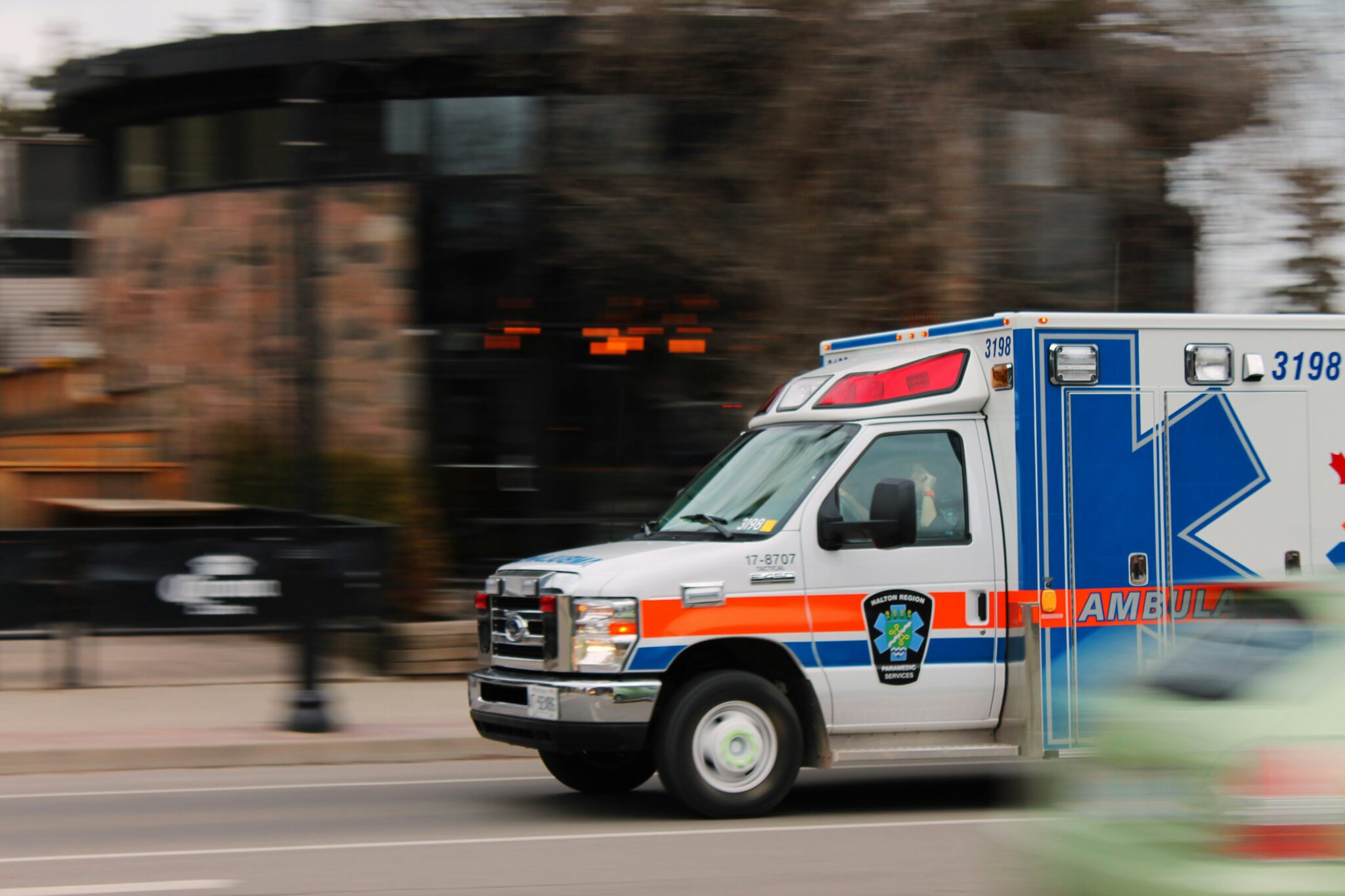
A Rare Diagnosis: Stevens-Johnson Syndrome
Stevens-Johnson Syndrome is a low-incidence yet life-threatening condition that causes severe skin reactions and affects the mucous membranes. Often triggered by an adverse reaction to medications, patients experience what doctors describe as a sensation of their body “burning from the inside out.” In Brenna’s case, the reaction was believed to have been caused by a prescribed medication used to treat behavioural symptoms.
Specialized Care at Akron Children’s Hospital
After initial treatment in her home state of West Virginia, Brenna was transferred to Akron Children’s Hospital, where she was treated by burn surgeon Dr. Deepak Ozhathil. Given the severity of her condition, the care team relied on advanced therapies to support Brenna’s healing and comfort.
SUPRATHEL®: An Innovative Solution for Skin Regeneration
To support Brenna’s healing and provide a gentle but effective protective barrier, the medical team turned to SUPRATHEL®, our innovative synthetic skin substitute. SUPRATHEL® is designed to treat severe wounds, including burns and skin disorders like SJS, by mimicking the properties of human skin. It helps to stabilize the wound environment, reduce pain, and promote natural regeneration while minimizing infection risk. Reduced scarring is another benefit, as is the fact little patients like Brenna are not tied to the bed, but can move around and cuddle with their parents.
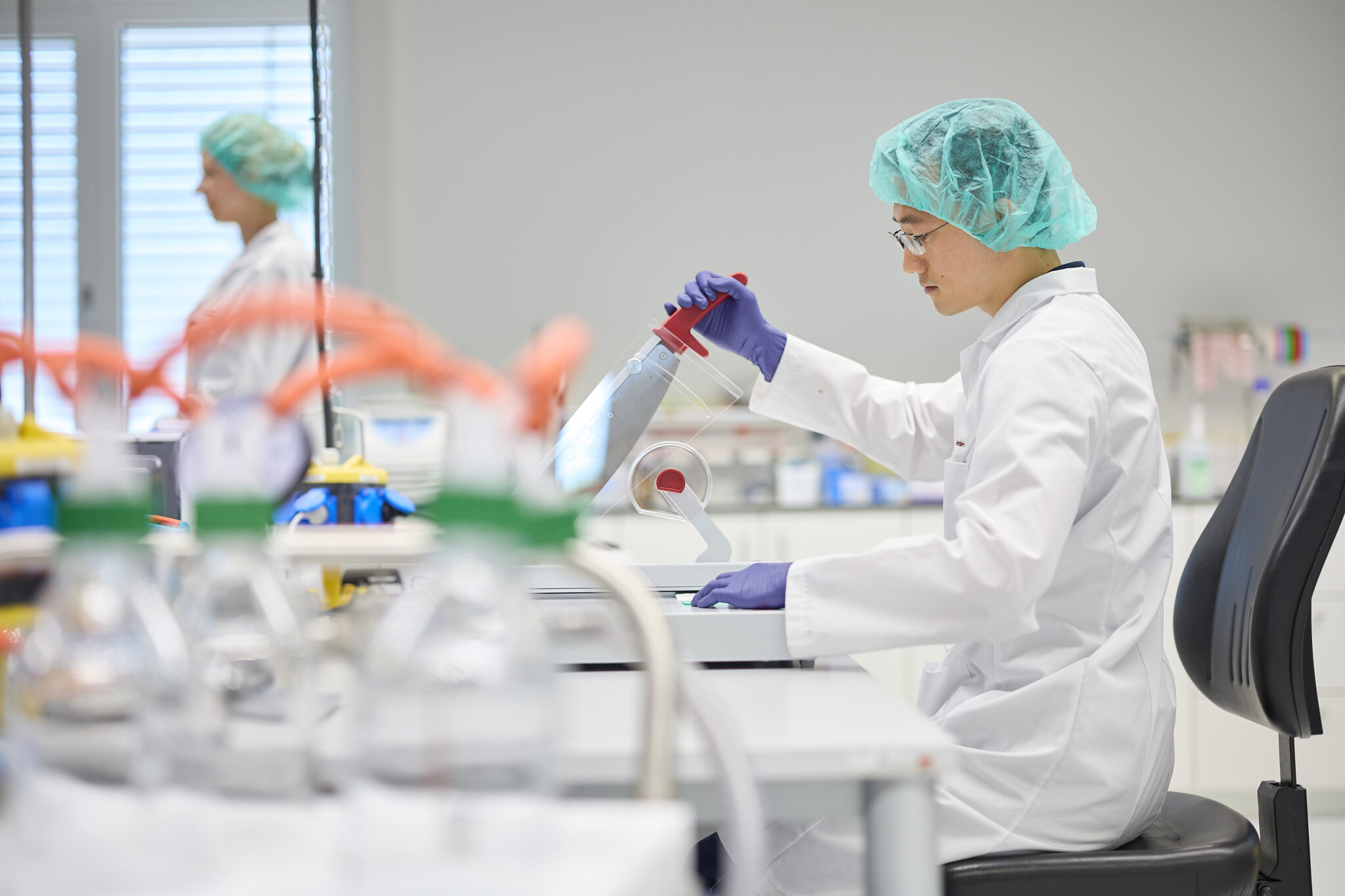
SUPRATHEL® is a purely synthetic product. It has been on the market for more than 20 years and has helped countless patients in recovering.
From Crisis to Recovery
Thanks to comprehensive care and advanced wound treatment, including the application of SUPRATHEL®, Brenna has made a remarkable recovery. After two weeks of hospitalization and intensive treatment, she was expected to return home and resume her energetic, joyful life. “She’s spicy, full of laughter—and she’s coming back to us,” said her mother, grateful for the care team and medical technology that helped make Brenna’s healing possible.
The scars from Brenna’s experience remain, but so does the story of strength, advocacy, and medical innovation. “Don’t give up,” Shauna said. “You go above and beyond and to the mountaintops for that baby.”
In this interview, Beatriz, Head of LATAM Commercial Operations at PMI, takes us behind the scenes of her fast-paced journey with the company. From diving straight into the deep end at a major conference in Guatemala to fostering close relationships with key medical teams across Latin America, Beatriz shares her passion for growth and collaboration. She talks about expanding PMI’s solutions beyond burn care and the exciting opportunities that lie ahead.
Beatriz, how long have you been with PMI?
I started on October 15, 2024, diving straight into the deep end with my first day being the inaugural Central America & Caribbean Burn Congress in Guatemala (laughs). Thankfully, I had the support from one of our distributors. He was a great help in addressing questions about the product’s use in surgery, among other topics. In the end, it turned out to be a strong start.
When I came back home, I repacked my bag and flew to Germany. I was in the Kirchheim office for two weeks, getting to understand processes and meeting my new colleagues. It was amazing to receive so much support from everyone. Christian was my “Uber” driver: he gave me a lift back and forth to the hotel. By the second week, it felt like home when I stepped into the office in the morning.
I’m very impressed with the regulatory team. To me, they are the blood and veins of the company. They work hard to enable us to sell the products in different regions and for different indications.
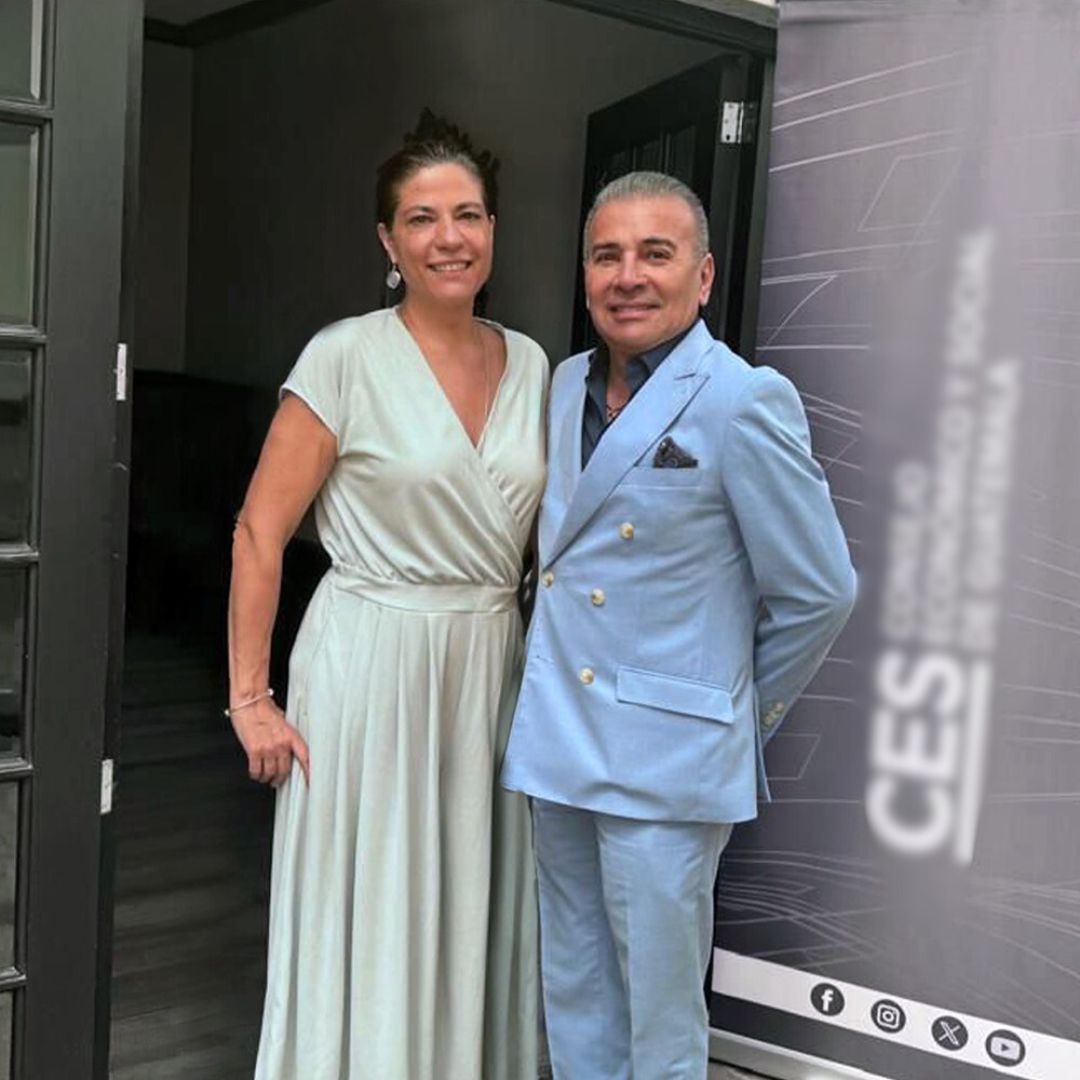
Anything else that particularly impressed you when you were in Germany?
I had the chance to accompany a surgeon while I was over there. I joined him and his medical team during surgery and could ask my many questions. Obviously, he knew a whole lot more about SUPRATHEL than I did! Funnily enough, his wife is Mexican, so we also shared a personal connection.
How did you come across PMI?
I was with the same company our colleague Marie-Ange had worked for before she joined PMI. We met regularly at different conferences and always waved to each other, said a friendly hello, but that was it. About a year ago, at a conference, Marie-Ange approached me and asked whether I could imagine joining PMI. It was still rather vague, but when she mentioned the idea again sometime later, I said yes.
You’re Head of LATAM Commercial Operations, what exactly does that mean?
PMI works with distributors in many Latin American countries. Apart from Mexico, we have representatives in Panama, Peru, Ecuador, Argentina, Chile, Costa Rica, and the Dominican Republic, among many others
I ensure that new materials, studies, interesting cases, and resources are accessible to everyone. Often, the representatives face similar challenges, and the solutions tend to be alike. It doesn’t make much sense if everyone is fighting alone.
For all those distributors, I act as a link to Germany, a “translator” who understands both Latin American culture and the company’s expectations. When we Latin Americans face an obstacle, we tend to avoid it rather than seek a solution. I have to find the right balance of support and assertiveness to resolve situations that might otherwise lead to a standstill. Of course, that’s based on stereotypes, but I’ve encountered this situation many times.
What drives you?
For me, staying connected with the people in hospitals is essential. And that doesn’t just mean the surgeons—it includes all medical staff. I believe it’s just as valuable to have a conversation with the medical director as it is with the cleaning staff.
I’m deeply passionate about my work. I strive to support the sales team and ensure they understand the true value of our products. It’s vital for distributors to be present during surgeries and spend time with the surgeons. I also believe in learning from other countries, sharing experiences, and gathering feedback. We all grow by learning from each other.
Honestly, I don’t focus much on the numbers. I trust they’re good because I truly love what I do.
What are your challenges?
You mean, apart from managing multiple independent distributors and setting up new ones? Just kidding! 😊
In all Latin American countries, staying closely connected with governmental organizations, particularly the medical sector, is essential. Surgeons must adhere to specific medical protocols, and it’s our responsibility to ensure they can do so reliably and successfully with our products. To achieve this, we collaborate extensively with key opinion leaders. If the product performs well, we need many more people like Ariel Mirandas across Latin America.
Another challenge is expanding the use of our solutions beyond burn care. So far, PMI and SUPRATHEL have been almost exclusively associated with this field.
On the flip side, Latin America presents an exciting opportunity. Here, doctors sometimes apply products beyond their traditional indications—often out of necessity. In Germany, for example, a burn victim typically reaches a hospital within a few hours, sometimes even a specialized clinic. In Mexico, it can take much longer for a patient to arrive, and by then, their condition often differs significantly from the ideal scenario described in application guidelines. The successes surgeons achieve in these challenging cases can provide valuable insights and help us advance in other regions.
In your opinion, what makes PMI special? How can patients benefit from PMI in particular?
What has truly impressed me about the company is that it’s family-owned and operated. I really appreciate the values and culture here. Decisions are made quickly, and everything is so well-organized and efficient. I hope to stay with PMI for many years 😊 and continue growing the business in Latin America. I’m also glad to see greater attention being given to distributors in my region -—they’re doing an outstanding job!
“The complexity of burn management requires a multidisciplinary approach”, says Dr. Marco Aurelio Lizárraga Celaya, President of the Asociación Mexicana de Quemaduras 2024-26. “Together, we will explore the latest techniques and strategies to optimize our patients’ outcomes and improve their quality of life.”
Polymedics Innovations (PMI), represented by our valued local distributor Grupo Vuelo, will be a participant of the International Conference of the Mexican Burn Association that takes place from April 30 to May 3 in Nuevo Vallarta, Nayarit. Along with Beatriz Vega, Head of LATAM Commercial Operations at PMI, Grupo Vuelo will provide PMI’s proprietary solution: successful and well-proven SUPRATHEL, based on PMI’s polylactide technology.
Since its launch more than 20 years ago, SUPRATHEL ® has significantly influenced the switch to synthetic products and is now used in more than 40 countries worldwide as a standard treatment for second-degree burn wounds and split thickness skin graft (STSG) donor sites.
Grupo Vuelo session on polylactic acids
On May 2, Grupo Vuelo and Beatriz Vega from PMI will host a session dealing with polylactic acids in treating burns. Dr. Ariel Miranda Altamirano from the Guadalajara University Hospital will coordinate the session taking place from 13:00 to 15.00 hours in Salón Veneros, San Blas, Mezcales.
Speakers will be:
Dra. Lourdes Rodríguez Rodríguez, talking on “Personal experiences on polylactic substitutes/Experiencia personal con sustitutos de acido pololáctico”.
Dr. Isauro Emmanuel Rendón Oliva on “Primary management of the burn patient: determining when outpatient care is a good option for burn patients / Manejo primario del paceinte Quemado determiner cuando manejo ambulatorio es una beuna opcion en el paciente Quemado”
Dr. Mario Vélez Palafox, who will talk about “Clinical application of polylactic acid on the face: experience and results/ Aplicación clínica de acido poliláctico en cara, experiencia y resultados.”
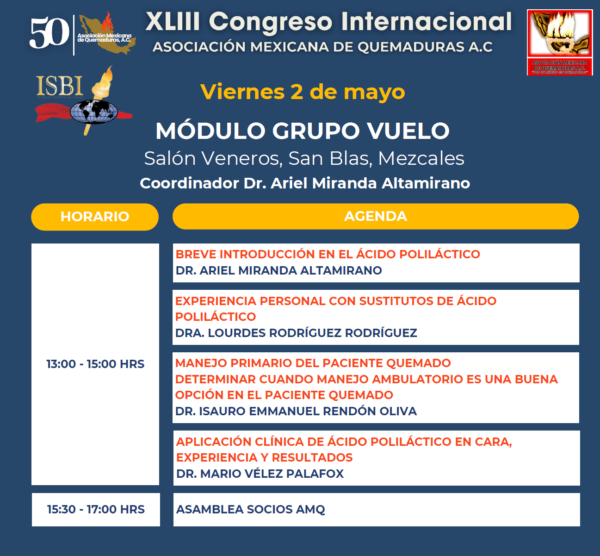
Dr. Ariel Miranda Altamirano from the Guadalajara University Hospital will coordinate the session taking place from 13:00 to 15.00 hours in Salón Veneros, San Blas, Mezcales.
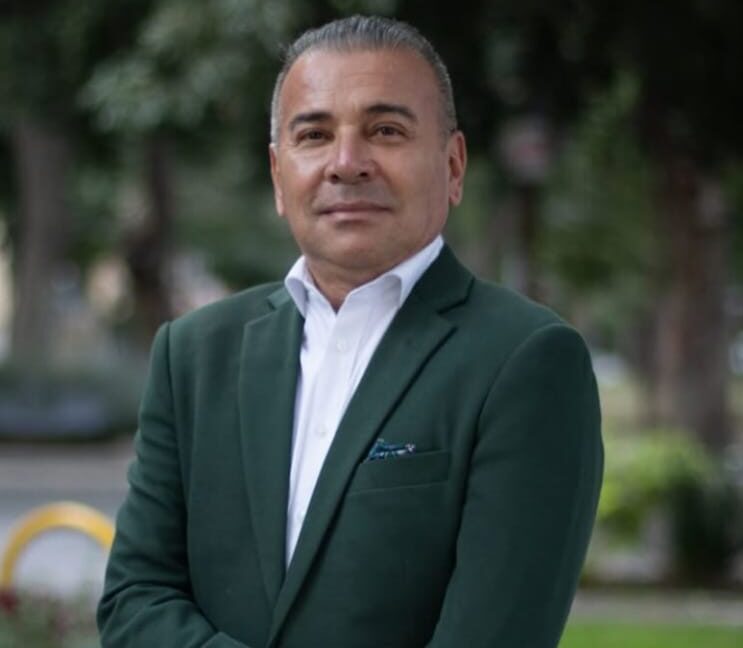
Dra. Lourdes Rodríguez Rodríguez will be talking on “Personal experiences on polylactic substitutes/Experiencia personal con sustitutos de acido pololáctico”.
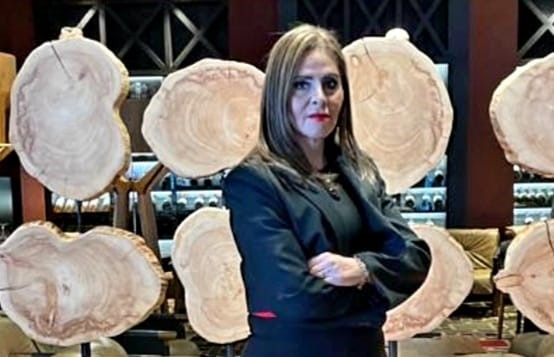
Dr. Isauro Emmanuel Rendón Oliva will talk on “Primary management of the burn patient: determining when outpatient care is a good option for burn patients / Manejo primario del paceinte Quemado determiner cuando manejo ambulatorio es una beuna opcion en el paciente Quemado.”
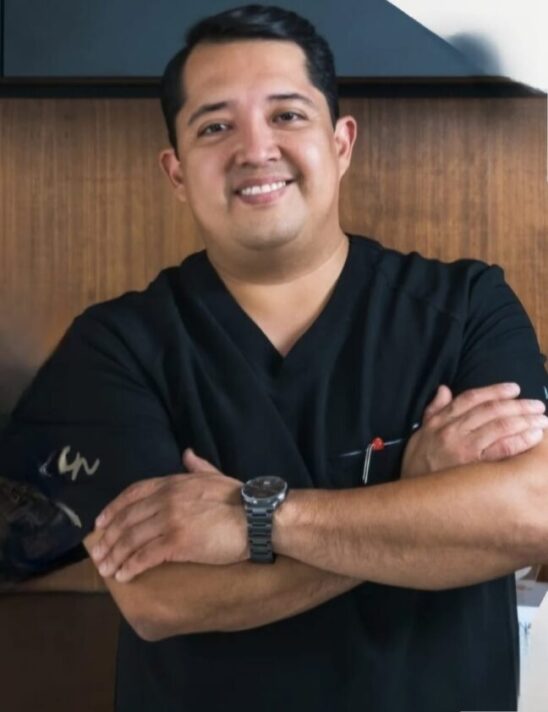
Dr. Mario Vélez Palafox will talk about “Clinical application of polylactic acid on the face: experience and results/ Aplicación clínica de acido poliláctico en cara, experiencia y resultados.”
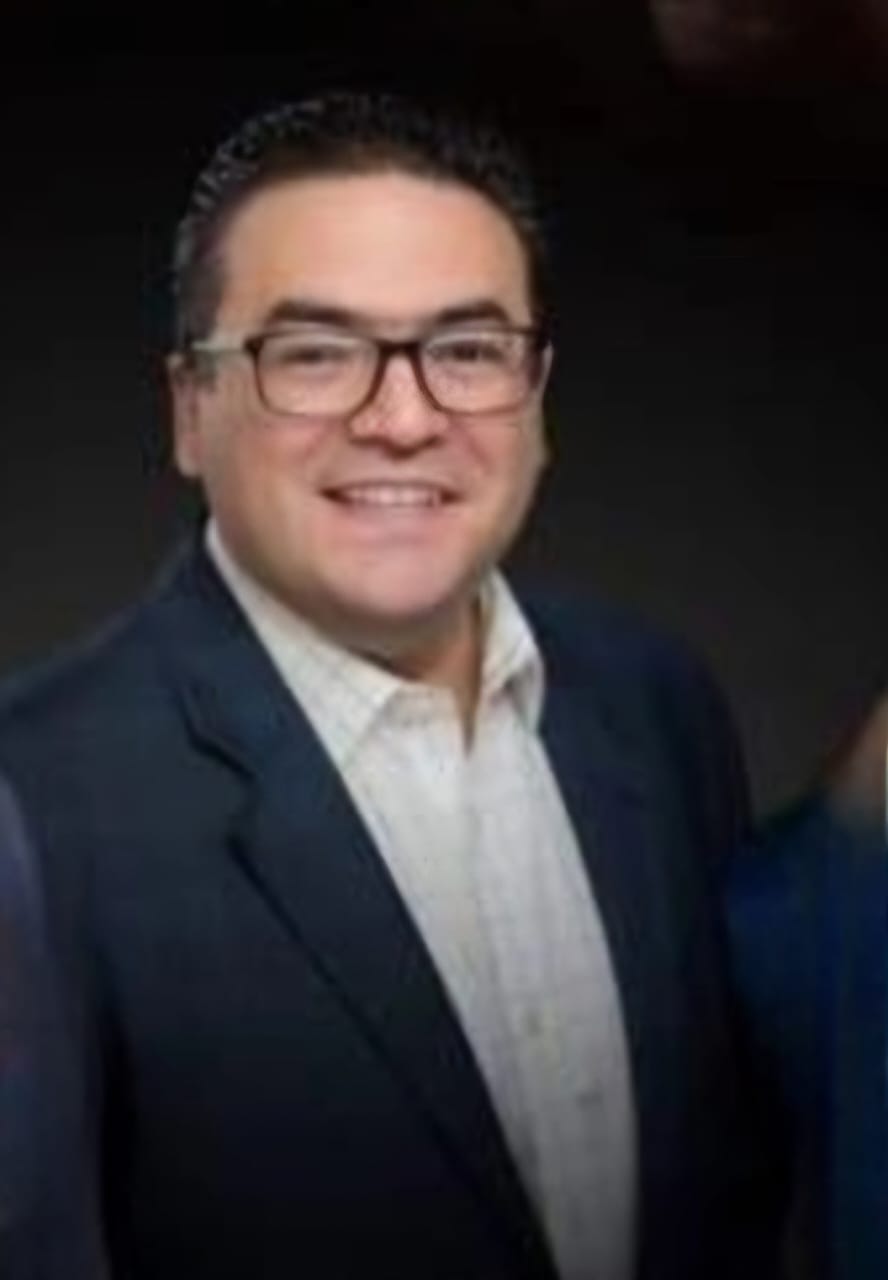
Case Reports: “SUPRATHEL® as an ideal primary dressing for partial to deep thickness second-degree burns.”
On May 3, there will be presentations of five case reports on the use of SUPRATHEL®. once again points the many benefits of the synthetic, biodegradable temporary skin substitute. The once again point out the benefits of SUPRATHEL ®, such as
In one of the cases, Angela Fernanda Delgado Langarica of General Surgery at the General Hospital of Zone 1 IMSS Villa de Álvarez reports on a 10-year-old schoolgirl with second-degree burns covering 18% of her body who was treated with SUPRATHEL after surgical debridement. The biosynthetic dressing minimized pain, required no replacements, and allowed easy wound monitoring, leading to fast and comfortable healing. Within 10 days, 95% re-epithelialization was achieved without infection. SUPRATHEL helped reduce scarring risks and provided significant physical and emotional relief, making it an ideal solution for peadiatric burn care.
Further cases presented:
Poster sessions illustrating the benefits of SUPRATHEL
From April 30 to May 3, there will also several poster sessions on experiences with SUPRATHEL®:
Utilización de membrana sintética microporosa reabsorbible (Suprathel®) como alternativa útil para la reducción del tiempo de recuperación y reducción de complicaciones en áreas donadoras en pacientes gran quemados
Authors / Autores: Alfredo Jhossimar Ochoa Rodríguez, Mario Vélez Palafox, et al.
Affiliation / Afiliación: Centro Nacional de Investigación y Atención al Paciente Quemado (CENIAQ), Instituto Nacional de Rehabilitación “Luis Guillermo Ibarra Ibarra”, Ciudad de México, México
Summary: This prospective study compares Suprathel® to conventional dressings in burn patients requiring skin grafts. Suprathel® showed significantly shorter epithelialization time, less pain, and fewer infections over 21 days.
Innovación en el tratamiento de quemaduras faciales: Máscara de sustituto epidérmico aloplástico para una recuperación sin secuelas
Authors / Autores: Jesús Rigoberto Covarrubias Rodríguez, Mario Vélez Palafox, et al.
Affiliation / Afiliación: Centro Nacional de Investigación y Atención al Paciente Quemado (CENIAQ), Instituto Nacional de Rehabilitación “Luis Guillermo Ibarra Ibarra”, Ciudad de México, México
Summary: This study was a retrospective observational analysis of 32 patients with facial burns who were treated with Suprathel®. The outcomes assessed included the degree and time of epithelialization, the need for surgical intervention, and patients’ self-perception.
Manejo reconstructivo exitoso de complicaciones secundarias a quemadura por álcali en paciente gran quemado con matriz sintética de regeneración dérmica a base de ácido poliláctico
Authors / Autores: Rubén Martínez López, Mario Vélez Palafox, et al.
Affiliation / Afiliación: Centro Nacional de Investigación y Atención al Paciente Quemado (CENIAQ), Instituto Nacional de Rehabilitación “Luis Guillermo Ibarra Ibarra”, Ciudad de México, México
Summary: A severe alkali burn case requiring limb amputations was treated with PLA-based dermal matrix (SDRM). After three applications and negative pressure therapy, exposed structures were covered effectively, enabling skin grafting without complex reconstructions.
Uso de Suprathel y su ventaja en el manejo del dolor en quemaduras. Reporte de caso
Authors / Autores: Hugo Enrique Beyuma-Mora, Myrna Lizeth Cuevas-Meléndez, et al.
Affiliation / Afiliación: Servicio de Cirugía Plástica y Reconstructiva, UMAE de Traumatología y Ortopedia No. 21, Monterrey, Nuevo León, México
Summary: In this comparative case report, Suprathel® demonstrated superior pain relief and adhesion compared to hydrocolloids. Patients required fewer dressing changes and reported significantly lower pain (VAS 1–3 vs 8–9).
Get in touch with us!
No matter what topics are most interesting to you: The Grupo Vuelo and PMI team are looking forward to meeting you at the International Congress of the Asociación Mexicana de Quemaduras A.C.
PolyMedics Innovations (PMI) was awarded the “Most Innovative CAMP” award at the 2025 Cellular, Acellular, and Matrix-like Products (CAMPs) Wound Care Summit. The conference, hosted by the Journal of Wound Care, took place from February 28 to March 2, 2025 at the Westin Fort Lauderdale Beach Resort, Florida.
This prestigious award recognizes PMI’s game-changing retrospective multi-center study, which highlights the efficacy of polylactic acid (PLA) in the treatment of diabetic foot ulcers (DFUs) and venous leg ulcers (VLUs). It was conducted by Brock A. Liden, DPM and José L. Ramirez-Garcialuna, MD, MSc, PhD, among others. The study demonstrated that PLA-based CAMPs significantly reduced healing time and increased closure rates compared to traditional collagen dressings and fish skin grafts (FSGs).
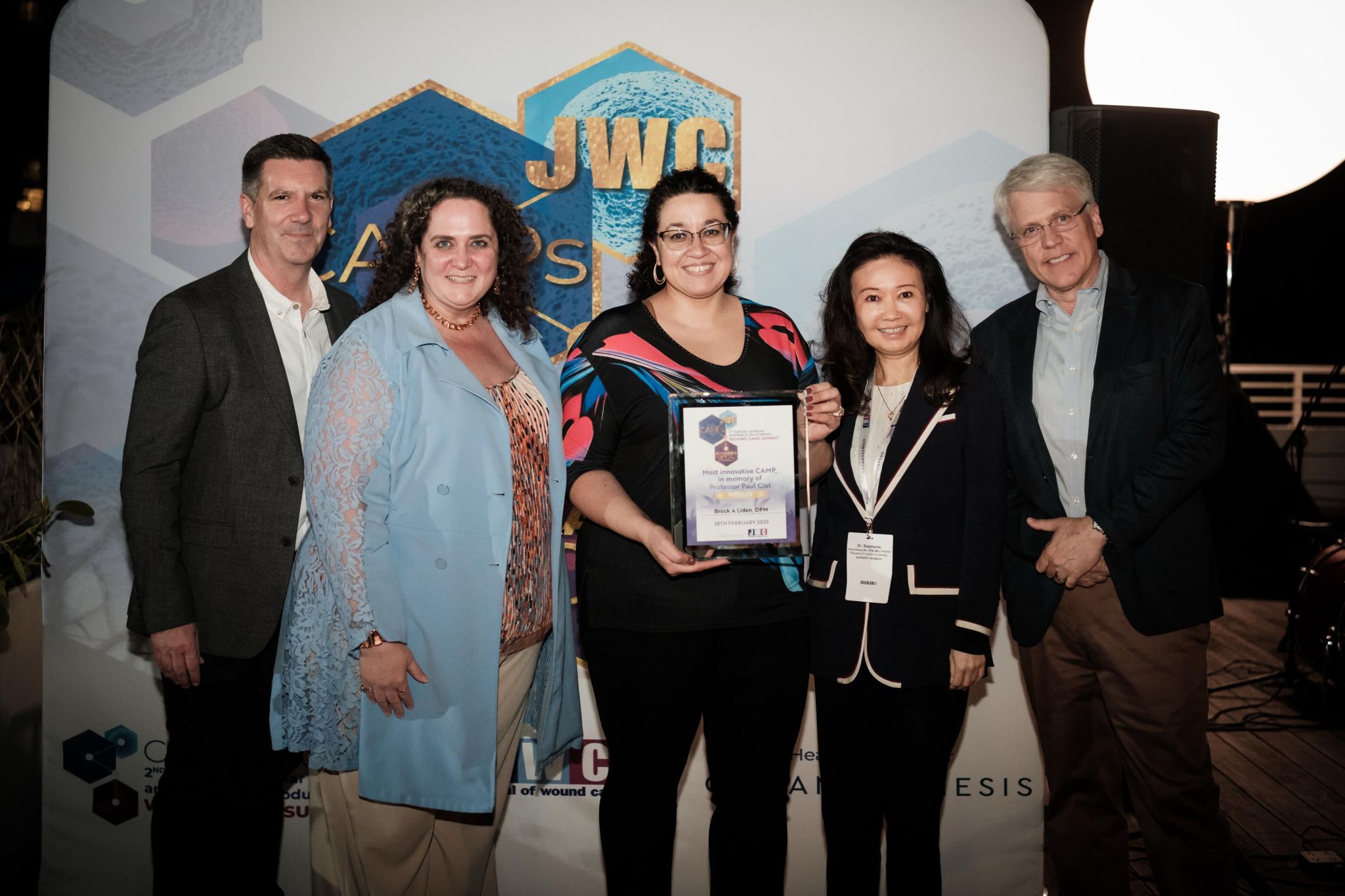
Key findings from the study:
✔ 50% faster healing for DFUs compared to collagen dressings and 20% faster than fish skin grafts (P < .001).
✔ 95% faster healing for VLUs compared to collagen dressings and 40% faster than fish skin grafts (P < .001).
✔ 55% higher rate of full wound closure at 12 weeks compared to collagen dressings and 26% higher than fish skin grafts (P < .001).
Christian Planck, CEO of PMI, comments: “These findings reinforce PLA’s potential as a ground-breaking innovation in wound care, offering faster healing, improved patient outcomes, and a promising alternative to biologic-based therapies. In brief: The results of this study confirm and validate our work and research in products such as SUPRA SDRM® and SUPRATHEL®.”
From March 26 to 28, PolyMedics Innovations will participate in the Conference of the European Wound Management Association (EWMA. The conference will focus on the theme: “Moving towards excellence in wound management by breaking frontiers and silos.”
Great potential for PLAs
PMI and their clinical partners will present about a dozen case studies on the successful application of Polylactid Acids (PLAs) in treating various types of (chronic) wounds and deep dermal burns.
Diabetic foot and chronic ulcers
Several studies will be looking into diabetic foot ulcers as well as chronic ulcers. In the study “Effectiveness of Polylactic Acid (PLA) Matrix for Diabetic Foot Ulcer (DFU) Closure” by Jose Ramirez-Garcialuna and Brock Liden, it evaluates the efficacy of PLA matrices compared to collagen dressings for DFU healing. Their study illustrates that PLA matrices show potential as an effective treatment for DFUs with better outcomes compared to standard collagen dressings.
Deep facial burns
PLAs are also effective for deep facial burns, as the study “USE OF POLYLACTIC ACID DERMAL MATRICES APPLICATION IN THIRD DEGREE FACIAL BURN” lays out. They support wound healing due to their adherence and degradation properties, allowing re-epithelialization without additional dressings. The same is true for treating paediatric burns, as the study “PROCESS DESCRIPTION OF THE APPLICATION OF POLYLACTIC ACID (PLA) MEMBRANES IN CHILDREN WITH FACIAL BURNS” describes.
Another split-plot study of a patient with a full-thickness burn, compares PLA and cadaveric grafts (ABSTRACT ID EP0776). The study concludes that PLA dressings support structured healing with reduced inflammation compared to cadaveric grafts, making them an effective alternative for severe burns.
Key Benefits of PLAs
Overall, studies suggest that lactate supports the healing process by promoting angiogenesis and stimulating the reconstruction of the (epi-)dermis by:
Lactic acid with an acidity constant (pkA) of 3.83 is able to lower the pH value. It is known that lowering the pH value accelerates wound healing by triggering the following effects:
Meet PMI at EWMA in Barcelona Booth #63
PMI looks forward to welcoming visitors to their booth and to exchanging experiences and getting feedback from medical personnel. Like the bilingual conference itself, the PMI team will be at least English- and Spanish-speaking.
Please take the chance to see poster presentations and abstracts that PMI presents at EWMA.
TAKING A STRIDE TO IMPROVE WOUNDS THROUGH A NOVEL CARE PATHWAY
Date: Wednesday, 26 March, 12:42 – 12:45 CET, E poster screen 4
Author: Jose Ramirez-Garcialuna, Brock Liden
Aim: Presents an integrated surgical approach to managing DFUs.
Method: Incorporates infection management, wound bed optimization, and biomechanical correction in a structured pathway.
Key Points: High wound closure rate (90% within 20 weeks).Significant reduction in recurrence (<5%) and amputation rates (50%
decrease).
Conclusion: STRIDE enhances healing and limb preservation through comprehensive care.
EFFECTIVENESS OF POLYLACTIC ACID (PLA) MATRIX FOR DIABETIC FOOT ULCER (DFU) CLOSURE
Date: Wednesday, 26 March, 17:15 – 17:23 CET, Room 133 and 134
Author: Jose Ramirez-Garcialuna, Brock Liden
Aim: Evaluate the efficacy of PLA matrices compared to collagen dressings for DFU healing.
Method: Interim analysis of a randomized clinical trial with 50 patients, divided into PLA-treated and collagen-treated groups. Primary outcomes included time to wound closure and healing rate over 12 weeks. Secondary measures assessed multispectral imaging, histology, and biomarkers.
Key Points: PLA-treated wounds closed faster (median 9 weeks vs. 17 weeks for collagen). Higher healing rate in PLA group (84% vs. 32% at 12 weeks).
Enhanced oxygenation, angiogenesis, and immune modulation were observed in PLA-treated wounds.
Conclusion: PLA matrices show potential as an effective treatment for DFUs with better outcomes compared to standard collagen dressings.
EFFICACY OF SYNTHETIC POLYLACTIC ACID MATRIX FOR THE CLOSURE OF COMPLEX WOUNDS WITH EXPOSURE OF FASCIA, PERITENDON, OSTEOSYNTHESIS MATERIAL AND PERIOSTEUM.
Date: Thursday, 27 March, 12:00 – 12:08 CET, Room 118 and 119
Author: Mario Aurelio Martínez-Jiménez, Jose Ramirez-Garcialuna, Ana Lorena Novoa-Moreno, Natalia Sanchez-Olivo, Víctor Manuel Loza González
Aim: Assess the effectiveness of PLA matrices for complex wounds involving exposed fascia, peritendon, osteosynthesis material, and periosteum.
Method Study of 19 patients (ages 18–92) with complex wounds lasting over a month. Conditions included diabetic foot, post-surgical dehiscence, trauma, pressure ulcers, and failed graft integration.
Key Points: Mean wound closure time was 9.36 weeks (range: 2–12 weeks). Re-epithelialization was achieved in 17 patients; 2 patients required additio-
nal graft preparation.
Conclusion: PLA matrices effectively facilitate wound closure with practical use, showing good adhesiveness and controlled degradation.
PLA USE IN PYODERMA GANGRENOSUM WITH INCREASED TEMPERATURE AND OXYGENATION
Date Thursday, 27 March, 13:12 – 13:15 CET, E poster screen 3
Author: Mario Aurelio Martínez-Jiménez, Jose Ramirez-Garcialuna, Brock A. Liden, Ana Lorena Novoa-Moreno, Víctor Manuel Loza González,
Samuel Kolosovas-Machuca
Method:Case of a 48-year-old female with a full-thickness ulcer treated with weekly PLA dressings for 6 weeks, monitored using thermography and
near-infrared spectroscopy.
Key Points: Significant wound closure by week 12, with temperature differences normalizing between the wound and healthy skin. Improved oxygenation
levels were observed, aligning with wound healing.
Conclusion: PLA dressings are effective in managing pyoderma gangrenosum, promoting granulation, re-epithelialization, and overall healing.
USED POLYLACTIC ACID DERMAL MATRICES APPLICATION IN THIRD DEGREE FACIAL BURN
Date: Thursday, 27 March, 13:21 – 13:24 CET, E poster screen 2
Author: Mario Aurelio Martínez-Jiménez, Jose Ramirez-Garcialuna, Víctor Manuel Loza González
Method: Case of a 43-year-old man with deep facial burns treated using PLA after debridement, without any gauze or additional bandages, during a
6-week hospital stay.
Key Points: PLA application showed good adherence, facilitated re-epithelialization, and required minimal manipulation. The patient had good cosmetic and functional outcomes with no long-term sequelae.
Conclusion: PLA dermal matrices are effective for deep facial burns, supporting wound healing due to their adherence and degradation properties,
allowing re-epithelialization without additional dressings.
ANTIMICROBIAL EFFECT OF PLA WOUND CLOSURE MATRICES
Date Friday, 28 March, 12:51 – 12:54 CET, E Poster Screen 3
Author: Jose Ramirez-Garcialuna, Brock Liden
Aim: Investigate antimicrobial properties of PLA matrices for chronic wound treatment.
Method: In-vitro analysis on human skin infected with MRSA and Pseudomonas, and a clinical trial on 20 patients with diabetic foot ulcers treated with
PLA or collagen. Bacterial load and cytokine analysis were performed.
Key Points: PLA significantly reduced Pseudomonas counts. Elevated angiogenic factors and tissue repair markers in PLA-treated areas. Clinical trials
showed decreased bacterial load at week 4 in PLA-treated wounds.
Conclusion: PLA matrices reduce bacterial bioload and promote tissue repair, making them a viable option for infected wounds.
POLYLACTIC ACID DERMAL SUBSTITUTE IN CHRONIC ULCERS
Date: Friday, 28 March, 13:00 – 13:03 CET, E poster screen 2
Author: Stefania Chiarenza
Aim: Investigate the efficacy of a polylactide/trimethylene carbonate/caprolactone copolymer in porous foam as a dermal substitute for
chronic ulcers.
Method: Study of 115 patients (ages 57–87) with chronic lower limb ulcers of varying etiologies (e.g., traumatic, vascular, pressure, autoimmune).
PLA was applied post-surgical debridement without fixation devices, followed by twice-weekly check-ups for 6-8 weeks.
Key Points: In 60.9% of cases, the dermal substitute remained stable for 2-4 weeks; early degradation or perilesional maceration was noted in larger
wounds. Improvement in the lesion base and re-epithelialization observed in 80% of wounds smaller than 100 cm². Significant pain reduction was reported, aiding in the suspension of pain therapy.
Conclusion: The PLA-based dermal substitute effectively promotes healing in chronic ulcers, with good handling, conformability, and long-term benefits.
IMPACT OF DIGITAL INFRARED THERMOGRAPHIC IMAGING FOR LIMB SALVAGE IN PATIENTS AT RISK OF LIMB AMPUTATION [PRESENTATION ID OP116]
Date Friday, 28 March, 14:45 – 14:53 CET, Room 133 and 134
Author: Víctor Manuel Loza González, Mario Aurelio Martínez-Jimenez, Natalia Sanchez-Olivo, Jose Luis Ramirez-Garcialuna, Eleazar Samuel
Kolosovas-Machuca
Method: Patients with MESS <7 or Wifi ≤4, recommended for amputation, underwent thermographic imaging on days 1, 5, and at 12 weeks if
salvaged. Temperature differences (ΔT) between injured and uninjured regions were analyzed.
Aim: To assess digital infrared thermography as an objective tool for evaluating limb viability and guiding salvage decisions.
Result Of 29 patients, 27 limbs were saved. Two groups emerged: ischemic (ΔT improved from -3.6°C to 0.12°C) and inflammatory (ΔT improved from
3.36°C to 0.36°C). The two amputated cases had worsening ΔT (<-5°C).
Conclusion: Thermography helps assess perfusion changes, supporting limb salvage decisions.
POLYLACTIC ACID MATRICES AS AN INNOVATIVE SOLUTION FOR COMPLEX PEDIATRIC HAND WOUNDS [Spanish] (Matrices de Ácido Poliláctico como Solución Innovadora para Heridas Complejas de Mano en Pediatría: Cicatrización Rápida y Control de Infecciones)
Date Wednesday, 26 March, available from 09:00 CET (e poster on display)
Author: Dr. Waldo Jimenez Valenzuela (Santo Domingo, Dominican Republic)
Method: Case reports on PLA application in pediatric patients with complex hand wounds.
Key Points: Minimal scarring and successful healing in 3 to 10 weeks. Reduced infection risks and hospital stays.
Conclusion: PLA is effective for pediatric wound management, aiding quick recovery.
PLA MEMBRANE FOR TREATING IMPETIGO [Spanish] (TRATAMIENTO DE IMPÉTIGO CON MEMBRANA DE ÁCIDO
POLILÁCTICO. PRUEBA DE CONCEPTO)
Date Wednesday, 26 March, available from 11:15 CET, (e poster on display)
Author: Mario Aurelio Martínez-Jimenez, Ana Lorena Novoa-Moreno, Natalia Sanchez-Olivo, Víctor Manuel Loza González, Arturo Ortiz-Alvarez, Jose
Ramirez-Garcialuna
Method: Case study of three adults with impetigo treated with PLA membranes for 21 days.
Key Points: Complete lesion healing within 7 days, with minimal post-inflammatory hyperpigmentation and no significant complications.
Thermography confirmed reduced temperature and inflammation.
Conclusion: PLA membranes are an effective and safe alternative for impetigo treatment.
USE OF POLYLACTIC ACID (PLA) DRESSINGS COMPARED TO CADAVERIC SKIN GRAFTS IN THE TREATMENT OF FULL-THICKNESS BURNS. HISTOLOGICAL ANALYSIS.
Date Wednesday, 26 March, available from 11:15 CET (e poster on display)
Author: MD Ana Lorena Novoa-Moreno, Jose Ramirez-Garcialuna, Mario Aurelio Martínez-Jiménez, Olga Johnson-Ponce, Víctor Manuel Loza González
Method Split-plot study of a patient with a full-thickness burn, comparing PLA and cadaveric grafts.
Key Points: PLA-treated areas showed better-organized keratinocyte progression, reduced inflammation, and improved fibroblast presence. Cadaveric grafts exhibited disorganized healing with more blood vessels but thicker layers.
SINGLE-APPLICATION PLA IN DIABETIC FOOT ULCERS (La Aplicación Única de Matrices de Ácido Poliláctico Promueve el Cierre
Sostenido de Úlceras de Pie Diabético: Serie de Casos)
Date: Wednesday, 26 March, available from 11:15 CET (e poster on display)
Author: Virginia Polanco
Method: Case series with six patients receiving a one-time PLA application after wound debridement.
Key Points: Effective wound closure achieved in 6 to 15 weeks.
Bioactive residue supported granulation and epithelium formation.
Conculsion: PLA matrices facilitate progressive healing and are suitable for outpatient treatment.
PROCESS DESCRIPTION OF THE APPLICATION OF POLYLACTIC ACID (PLA) MEMBRANES IN CHILDREN WITH FACIAL BURNS
Date: Wednesday, 26 March, available from 11:15 CET (e poster on display)
Author: Ana Lorena Novoa-Moreno, Jose Ramirez-Garcialuna, Mario Aurelio Martínez-Jiménez, Víctor Manuel Loza González, Natalia Sanchez-Olivo
Method: Descriptive study on pediatric patients with facial burns, treated with PLA membranes without additional bandages for outpatient care.
Key points: Demonstrated reduced manipulation, effective healing, decreased infection risk, and improved pain management. The membrane‘s translucency allowed real-time monitoring of healing.
Conclusion: PLA membranes provide a beneficial and comfortable treatment for pediatric facial burns, ensuring effective wound management.
CLOSURE OF DIABETIC FOOT ULCER WITH POLYLACTIC ACID MEMBRANE GUIDED BY THERMOGRAPHIC IMAGING
Date: Wednesday, 26 March, available from 11:15 CET (e poster on display)
Author: Víctor Manuel Loza González
Method: Case of a 67-year-old woman with a diabetic foot ulcer monitored using thermography during PLA membrane treatment.
Key points: Thermography showed reduced temperature differences and inflammation, signaling progressive healing.
Conclusion: Thermography is an effective tool for monitoring the healing process in PLA-treated diabetic foot ulcers.
Our goal at Polymedics Innovations (PMI) is to achieve CO2-neutral production by 2030. This is in line with Germany’s objective of finding an equilibrium between its greenhouse gas emissions and their elimination.
Because that’s a big task – for us as a company and for Germany as a country – PMI is excited to receive the support provided by the KLIMAfit initiative. The aim of this programme, funded by the Baden-Württemberg Ministry of the Environment, is to introduce commercial enterprises to corporate climate protection and to support them in reducing their CO2 emissions. Work is carried out on a regional basis; one of these regional groups is KLIMAfit Esslingen, in which PMI is participating together with five other companies.
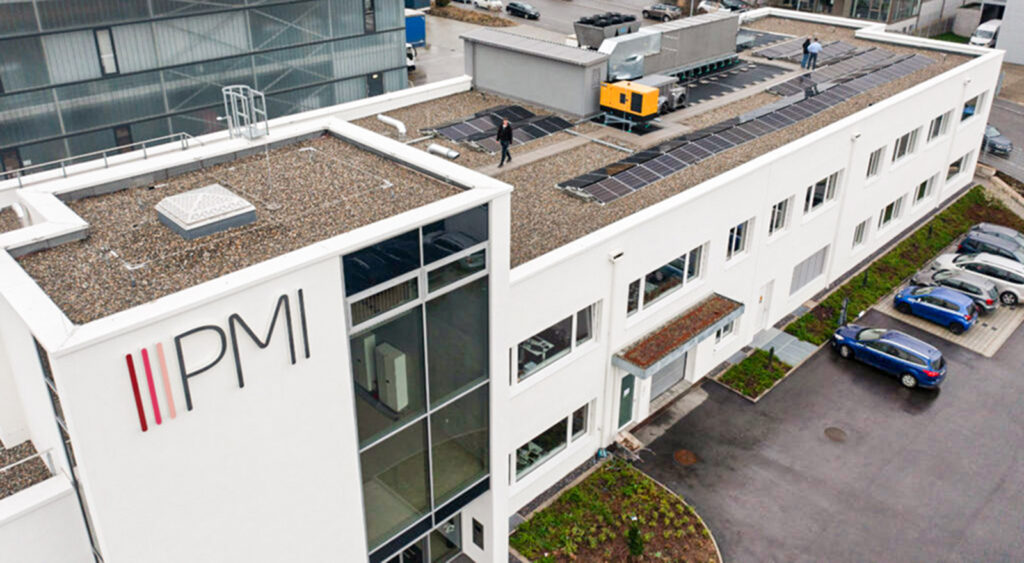
Our building features a photovoltaic system and geothermal heating, reducing energy consumption by 45% compared to conventional buildings. Enhanced insulation, optimized windows, and temperature-controlled shading contribute to this efficiency. The cleanroom is designed with energy-saving technologies, including waste heat recovery from production facilities.
In our first meeting early in 2024, we dealt with greenhouse gas balancing. This gave everyone a clear understanding of what we are talking about. Electricity, heat, and renewable energies were the focus in the second session. Our final group meeting focused on compensation measures. Mobility and Scope 3 emissions – pollutants not caused by the production company, but by their suppliers, customers, and other external stakeholders – have caused us to step back and look at our business from a global perspective. Mobility is part of our corporate culture. “We have an independent sales company in the USA and numerous employees,” explains our CEO Christian Planck. “We also sell our products in around 40 countries around the globe. Air travel is part of everyday working life.”
Despite this, we can still find ways to reduce our carbon footprint. For example, as many appointments as possible are being combined in order to reduce the number of air trips. Longer stays make more sense than several individual arrivals. Even seat spacing has an impact on the traveller’s carbon footprint. In other words, economy class beats business class.
“The heterogeneous project group of KLIMAfit shows each participant ‘best practice’ examples that we would not otherwise have available,” says PMI CEO Christian Planck, underlining one advantage of the KLIMAfit initiative.
He also points out the steps that PMI has already taken, referring to efficient use of energy required for electricity and heat: “In our company building, which was inaugurated in 2023, we have implemented measures for sustainable energy generation and energy efficiency.” For example, the PMI building in Kirchheim’s Hegelesberg has a photovoltaic system and is heated by geothermal energy. “The energy consumption required for our entire building is 45% lower than that of a conventional building,” explains Christian Planck. The higher thermal insulation, optimised windows, and temperature-controlled shading contribute to this. The cleanroom was also planned and implemented according to the latest energy findings – even the waste heat from the production facilities is recovered and reused.
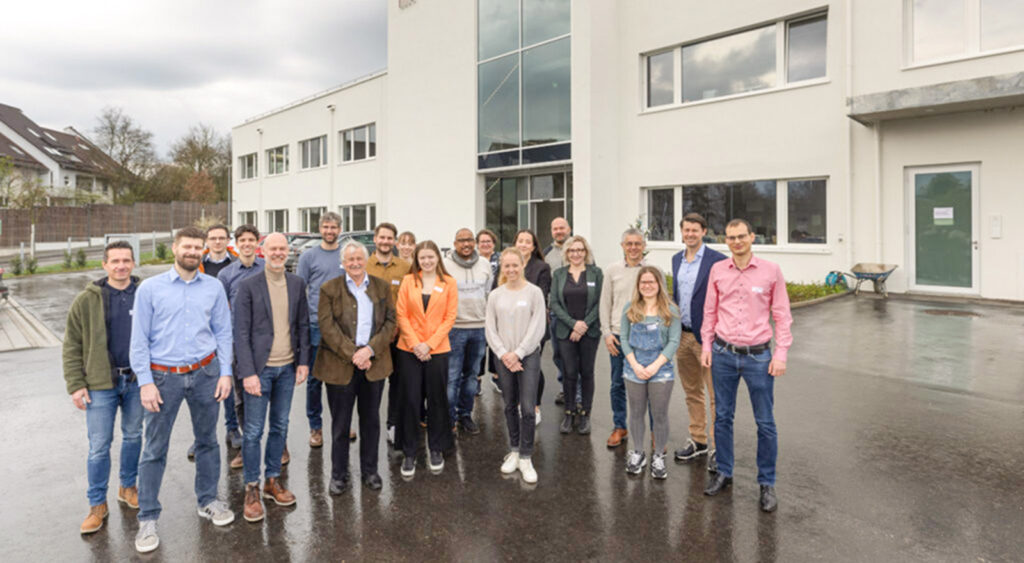
20 years is a considerable period of time. If we take the human perspective, it’s the number of years that elapse from childhood to adulthood An incredibly long time from a child’s point of view, which seems to pass much faster later when we become parents ourselves. It’s all about perspective…
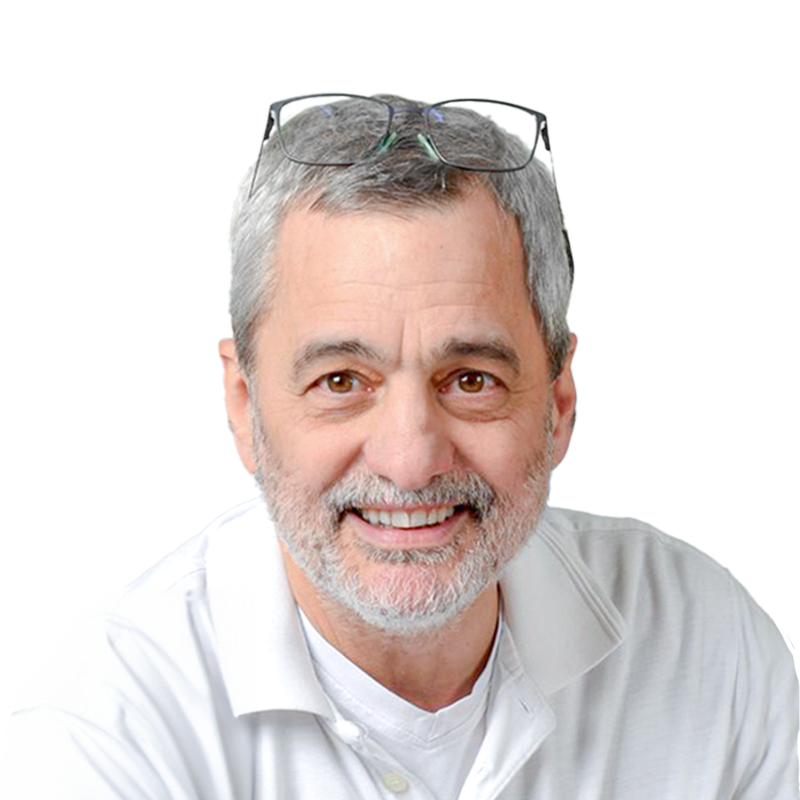
Dr. Carsten Krohn, Schwabing Clinic, Munich
We actually wanted to talk about SUPRATHEL®, our artificial skin substitute. For a medical product, 20 years is a lifetime: the world can change dramatically in two decades.
We – or more precisely SUPRATHEL® – can provide a good example: Carsten Krohn, head physician at the Center for Severely Burned Children at the Munich Schwabing Clinic, explains how burns were treated some 20 years ago: “At the beginning of my career, burns and scalds were still treated openly, meaning that the patients lay with their open wounds in a very warm, humid room. Because burns and especially dressing changes are extremely painful, patients were sedated. They also had to be isolated to prevent wound infections. It was a traumatic experience for the children, just as it was for their parents!”
Luckily, SUPRATHEL® changed this regimen. Dr. Herbert Haller, for many years a senior physician at the Unfallkrankenhaus Accident Clinic in Linz, Austria, and director of its Burns Center, remembers how quickly this happened: “SUPRATHEL® made up to three dressing changes obsolete overnight.” He particularly points out the pain relief and the fact the artificial skin substitute can stay on the wound: “That was particularly beneficial in the treatment of children, who previously had to be sedated with opiates before changing a dressing.”
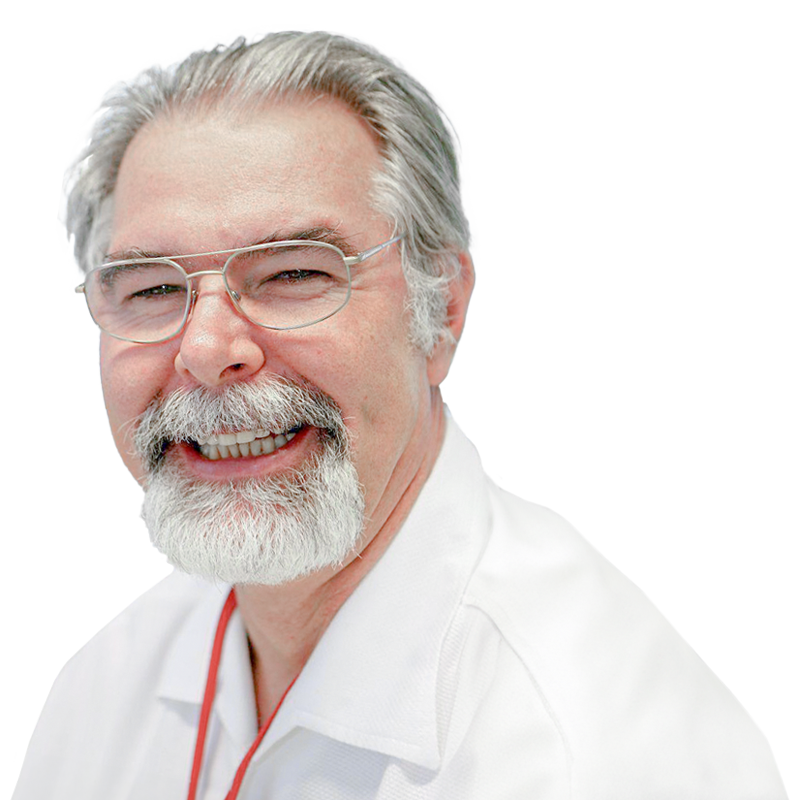
Dr. Herbert Haller, Accident Clinic, Linz
A revolution doesn’t need much time. SUPRATHEL®, however, also shows us something else: that a revolution can be long-lived, even in the field of medical technology.
Dr. Lars Kamolz, University Professor at the University of Graz, was one of the early users of SUPRATHEL®. For nearly 20 years, the Graz University Hospital has relied on SUPRTHEL® for treating 2a and 2b-degree burns. When asked what convinces him most about SUPRATHEL®, Dr. Kamolz answers: “I find the view over a period of time impressive. If a product is still in use after 20 years that is the greatest accolade. New materials come onto the market; competitors mount an attack. If a product succeeds in staying in the market as a standard, it is simply good.”
Dr. Matthias Rapp from the Center for Severe Burn Injuries at the Marienhospital in Stuttgart chooses a more numbers-based approach: “By using SUPRATHEL® we have been able to reduce by about two thirds the number of operations for second-degree burns.”
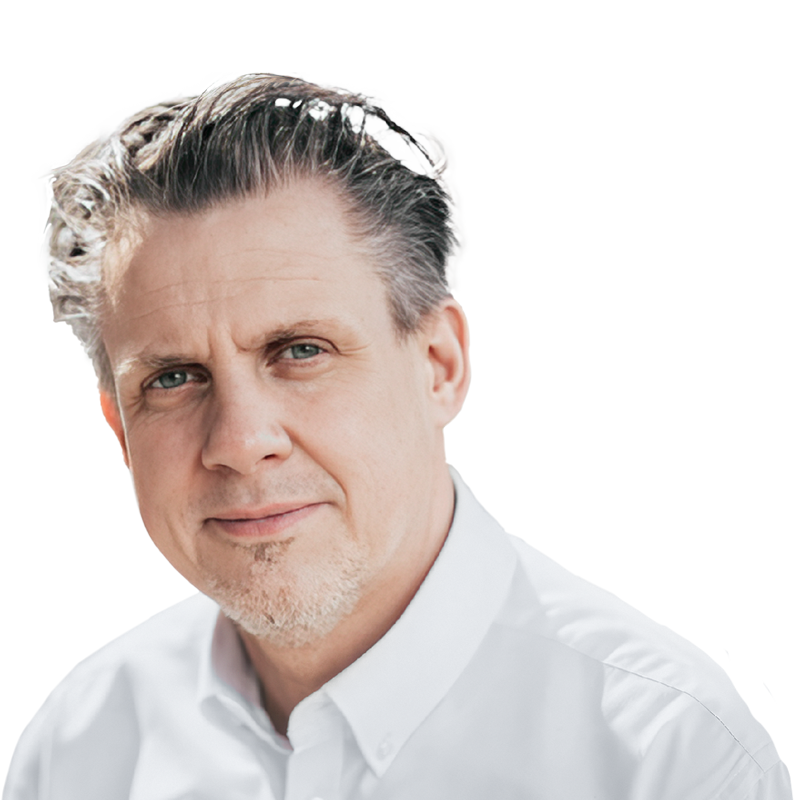
Dr. Lars Kamolz, University, Graz
Despite the continued success for SUPRATHEL®, we are not resting on our laurels. SUPRA SDRM®, for example, is a product that utilizes and expands upon the knowledge and experience gained in the development of SUPRATHEL®. SUPRA SDRM® has been found effective in treating difficult-to-heal wounds faster than current standard of care and has already brought back quality of life to many people.
Polylactic acid-based products (PLAs) such as SUPRATHEL® and SUPRA SDRM® are sought after for many applications due to their degradability and biocompatibility. PLAs are also suitable as a scaffold material for tissue engineering. Additionally, by shifting the pH of the wound bed from an alkaline to a neutral pH, our PLAs create an environment that is unsuitable for many pathogenic bacteria – allowing the wound healing process to accelerate and bring the patient back to a normal quality of life and productivity.
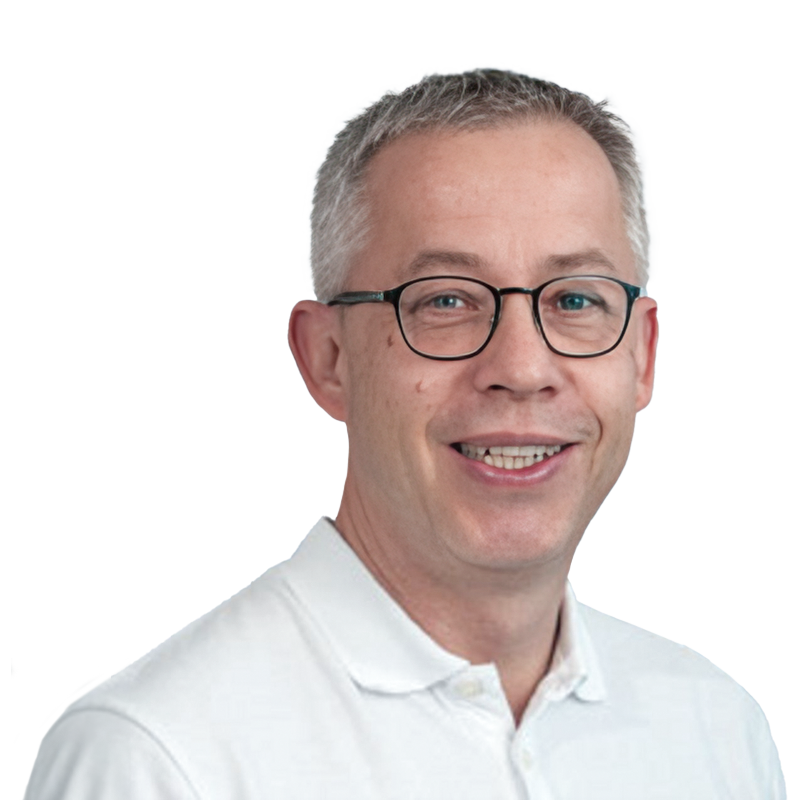
Dr. Matthias Rapp, Marienhospital, Stuttgart
What does “economy” mean? What does “industry” refer to? These terms are omnipresent in our everyday lives, we use them all the time. But let’s be honest: Could we explain the respective concept in a few sentences? And in such a way that even a primary school child understands?
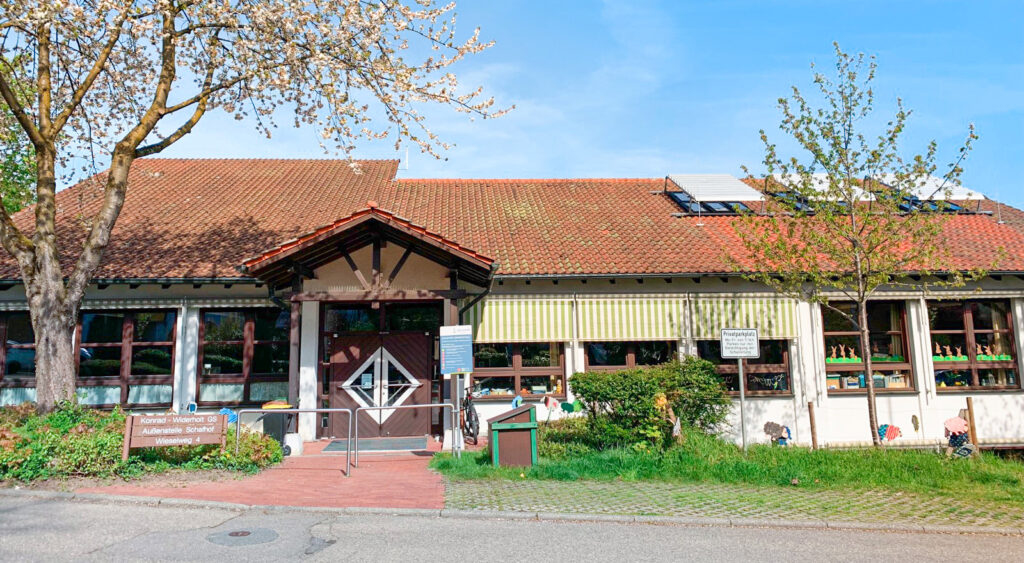
The task definitely needs a bit of preparation – and a clear example. We have decided on an object that every child knows, usually better than the parents would like: the Kinder Joy surprise egg. In spring 2024, we used the toy-filled chocolate egg to explain to around 20 second-graders from the Schafhof primary school in Kirchheim/Teck what we do as a “company”. This is what the primary school pupils who visited us together with their teacher wanted to know.
Using the Kinder Joy example, we have illustrated the path of a product over its entire life cycle. A good product requires research and development. After all, the chocolate should taste delicious and not melt directly in the hands. Someone has to produce the chocolate, choose the toy that goes into the egg, and has to think about whether the child who unwraps it at the end will enjoy it. Someone then has to sell the Kinder Joy to supermarkets, another has to do the advertising.
After this insight, our little visitors were allowed to stroll through the building at PolyMedics Innovations and see what we produce; as we all know, these are not chocolate eggs. At the side of her father Christian Planck, Luise Planck guided her classmates through offices, the clean room, and the production of artificial skin substitute materials.
At the end of their afternoon, the kids were allowed to get active themselves: Together with their teacher and some skilled PMI colleagues, each child made their own lava lamp. And, of course, there was also a surprise egg for everybody to take home.
Christian Planck, CEO of PolyMedics Innovations, cherished the visit of the primary school pupils as a proud Dad – and way beyond. “We cannot take the education of our children, our young generation, seriously enough. We hope that with our practice-oriented afternoon we were able to convey an understanding of ‘business’, ‘companies’, and thus also of what mom and dad do every day. We would like to thank the Schafhof Elementary School and their staff and ours, who made her way to us with her class.”
We from PMI hosted the KLIMAfit event that dealt with mobility. The mayor of Kirchheim, Dr. Pascal Bader also took part and reported on the challenges of a town becoming more climate neutral. His insights made this meeting a highlight for us.
At the beginning of July, we’ll have an “audit”: the commission will check whether all documentation has been prepared correctly and measures have been derived.
Later in July, all the participants will receive a certificate of participation in this project. We’re looking forward to this event hosted by Heller Maschinenfabrik.